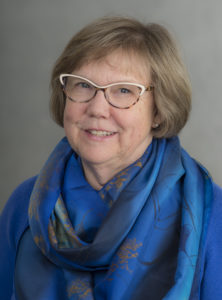By Rebecca Sturey

As I rounded the corner, I uncovered the lunch area where the Nelson lab assembled. Smiles were apparent on everyone’s faces, and the warmness of their interactions seemed to emanate from the table. This moment stood in stark contrast to the barren, institutional hallways only feet away. When people discuss mentors, they often list their successes and awards. To me, this would be a horrible injustice to Deborah Nelson. A plaque, an award, or a series of grants cannot capture her greatest accomplishment. She is a living reminder that a brilliant mind and a kind soul go beautifully hand in hand.
As our labs jointly studied exosomes, a relatively unexplored field, our paths crossed multiple times. In less than a month, I witnessed her spearhead a campaign for the best equipment available. She successfully instigated the development of a beautifully crafted website to the benefit of all labs involved in exosome research at The University of Chicago. With a particularly insightful touch, she volunteered to make food arrangements for our budding exosome meetings to help catalyze our community. In a world dominated by objectives, deliverables, and deadlines, her seemingly dichotomous combination of sensitivity and intensity remains an indisputable trademark.
Her perspective and approach are no doubt a by-product of her career path. She fought hard and patiently for the opportunity to exercise her scientific independence. Her postdoctoral advisor gave her a perspective that fuels her to this day. “In a world in which women didn’t build things, women didn’t head conferences, they weren’t strong investigators, it was [Dr. Frederick Sachs] who told me: ‘Debby you can do this. There is nothing magic about it. It just takes time.’”
Deborah began her pursuit of science after falling in love with physiology and anatomy. Interestingly, she never felt pulled towards being a physician. Instead, she knew she wanted to focus on personally interrogating the molecular association between physiology and anatomy. She completed her PhD in Physiology at UCLA, and then two postdoctoral positions, one at the Universitat des Saarlandes in Germany, and the other at SUNY Buffalo. In 1985, she came to The University of Chicago. Here she opened her own lab and applied her expertise on ion channels with broad applications to diabetes, neurodegeneration, cystic fibrosis, innate immunity, muscle excitability, and epithelial transport of molecules. “When I was in graduate school, people worked on the same thing their whole life. When I finally got my own lab, I knew I couldn’t do that.” True to character, her lab has recently begun work on exosomes. This was largely prompted by her entire lab’s scientific infatuation with them and their future career interests. Deborah Nelson feels that her lab is an extension of her family, and that science is at its best when personal relationships are used to promote effective communication.
“I’m not capable of putting in 12 hours a day and having the people around me at a distance. I think you really need to handle people as you want to be handled. [People] need to feel safe in their environment: to tell you that something is not working, to tell you that they feel uncomfortable about something, to tell you that they have needs. You can’t just sit in a room and read a bar graph and know whether it is right or wrong. I don’t think I could do [science] any other way.”
Due to her decades of experience, I knew I was in for a treat when I asked her what advice she would give to future scientists. I was not disappointed. She was unabashedly straightforward. I was immediately humbled by her love of science and her personal sacrifices to the field.
“You have to have passion. You have to care about it in a way that almost everything can go to the side. You have to be intrigued enough by the question to get up in the morning and think about it. When your feet hit the floor, you think about it. When I was a graduate student, if you became pregnant, you had to leave graduate school. And so, it was two decades later that I realized that all my colleagues had families. I think you have to be willing to be flexible. You have to see your way to changing pathways, recognizing new techniques, handling your ‘small business’ in different ways”
As a true scientist and mentor, her dreams are humble and magnanimous. She has a longstanding hope to see science become a community that increasingly supports each other and has open and effective communication. In particular, she expressed that her most pressing goal is to equip the members of her lab with the proper tools to move forward and to ensure that they are “well on their way to a happy career path.” Well, with a caring, inspirational role model such as Deborah Nelson, they are undoubtedly in good hands.
